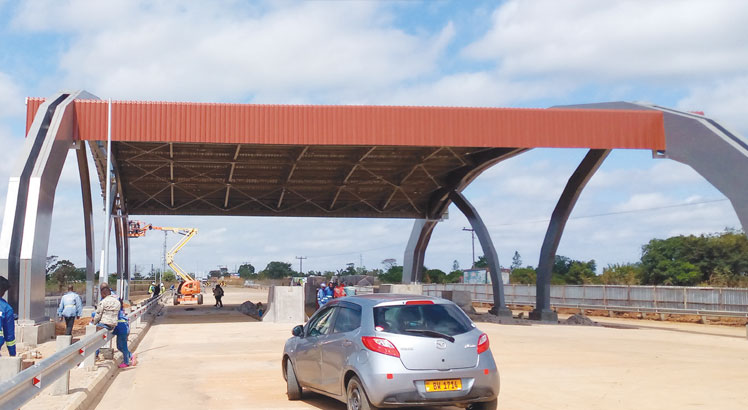Tollgate roll-out raises mixed reactions
There are mixed reactions on the planned roll-out of tollgates in the country with stakeholders welcoming the initiative, but faulting the timing of the project which comes at a time incomes are dwindling due to Covid-19 impact.
The reactions followed government’s gazzetting of the Roads Fund Administration (Tolls) Regulations 2021 effecting the operations of tollgates at Chingeni in Ntcheu and Kaliyeke in Dedza by September 1 with fees ranging from K1 700 to K20 000 per pass.
In an interview yesterday, Roads Fund Administration (RFA) public relations manager Masauko Mngwaluko said the toll-gates will boost revenue collection for the maintenance and rehabilitation of roads in the country.

But the Consumers Association of Malawi (Cama) indicated yesterday that while the move is for the good of road infrastructure development in the country, the implementation is coming at a time when the “economy is in bad shape”.
Cama executive director John Kapito said while strong awareness is needed to make people understand the concept, people can only buy-in if they see the benefits.
He said: “We should not compare Malawi with other countries because other countries have quality roads and we are of different economic status. Our roads are in bad shape. Perhaps, we could have started on a lower rate so that we should raise the tariff over time.”
In a separate interview, Kwezy Bus Company manager Ben Vitsitsi observed that while the initiative is good for sustainability of road infrastructure, there was need to consult bus operators.
He said it will be hard for bus operators who are already reeling from reduced revenue due to seating capacity restrictions in the face of the Covid-19 pandemic.
Vitsitsi said: “The charges are on the higher side. Again, they could have looked at the frequency of road users and maybe, for us, impose a monthly fee.
“I also feel it is a misplaced priority because a lot of foreign cars in the borders have been left out of the initiative.”
Speaking separately, Road Transporters Association of Malawi executive director Chrissie Flao observed that the toll fees were on the higher side looking at how expensive fuel is at the moment.
“Government could have done better to introduce lower rates and gradually increase them,” she said.
According to the Malawi Gazette Supplement dated August 6 2021 signed by Minister of Finance Felix Mlusu, the toll fee or other charge imposed for use for a tolled public road shall form part of the Roads Fund and shall be used for maintenance or rehabilitation of the tolled public road or any other public road as may be determined by the administration.
Failure to comply with the regulations shall attract a penalty of K1 million and to imprisonment of 12 months.
In addition, the court may order the convict to pay the toll fees due and the repair cost of the damage caused to the road infrastructure in the course of committing that offense.
Among others, at a time of passing through a toll payment point, light vehicles will pay K1 700, K3 400 for minibuses and pickups, K5 100 for vehicles with between 17 to 31 passengers capacity with two to five tonnes, K8 000 for vehicles with 10 tonnes capacity while for abnormal load vehicles, they will be require to pay K20 000.
Mngwaluko observed yesterday that while the fees are on the lower side compared to counterparts in the region, having the tollgate will transform the country’s’ road infrastructure as the revenue generated will boost the Road Fund.
He said: “There were some feasibility studies looking at the levies in terms of our transport volumes and to make it also economically viable for Malawi. But also, we could not be an exception because the nurture of these facilities are also in the region.” He said the fund hopes to generate between K4 billion to K5 billion per year, with the amount increasing with the passage of time





